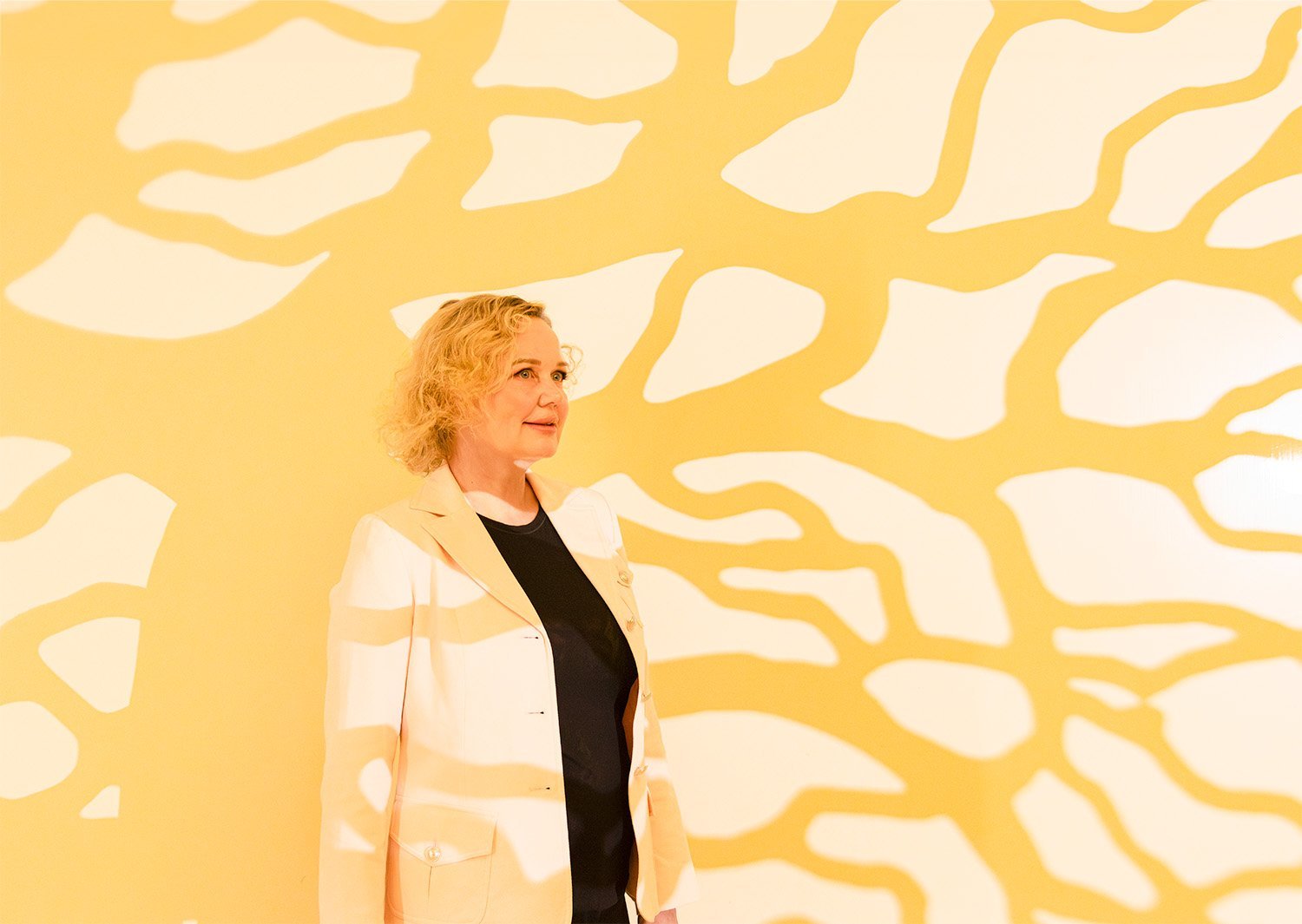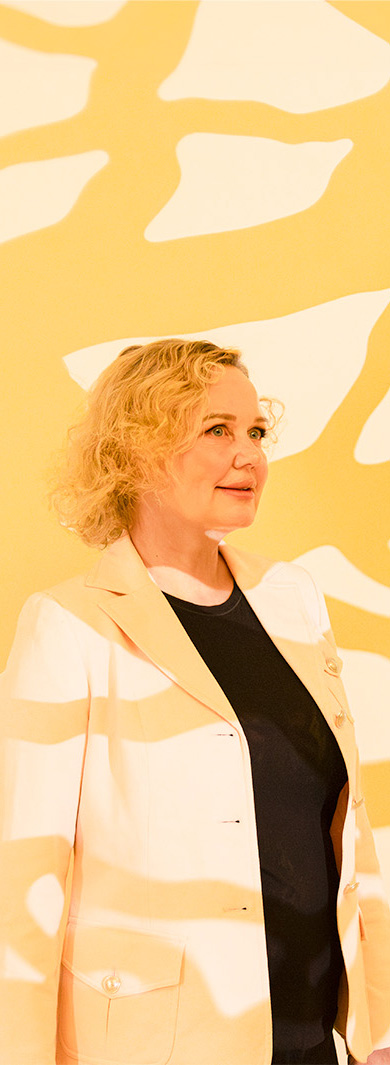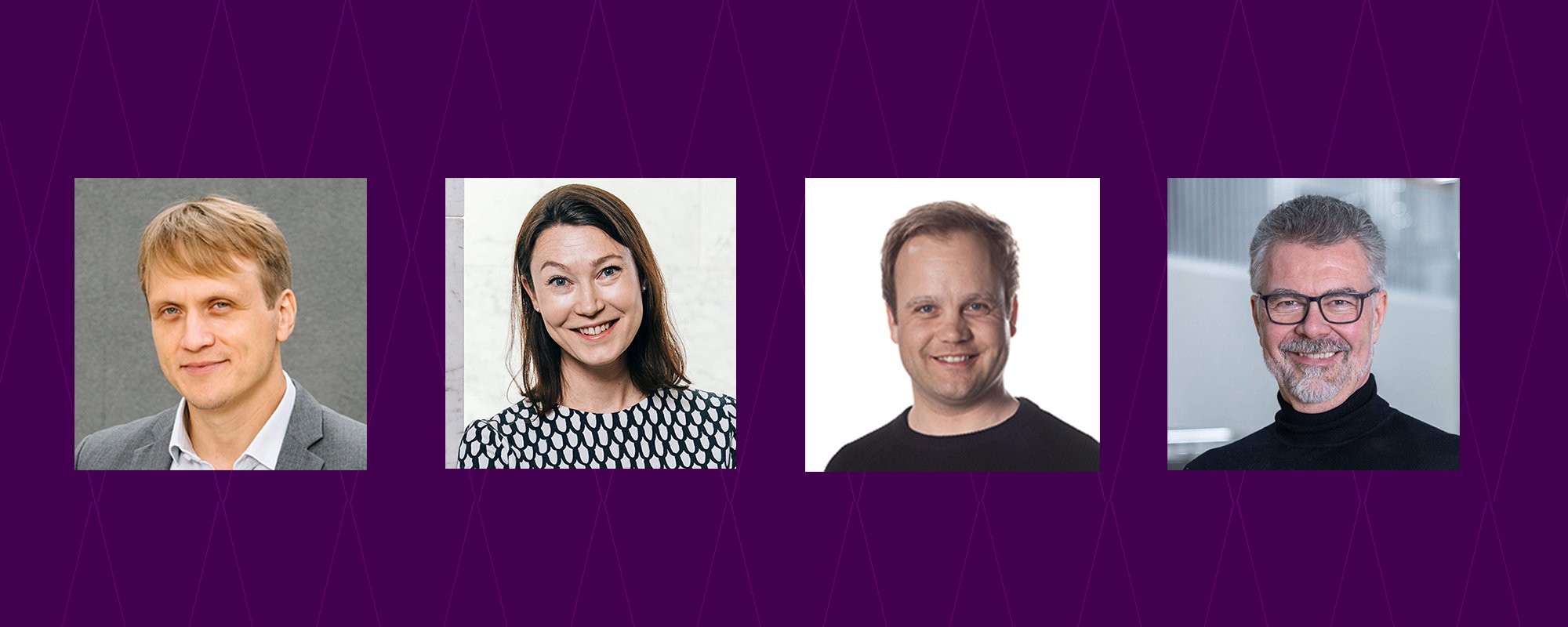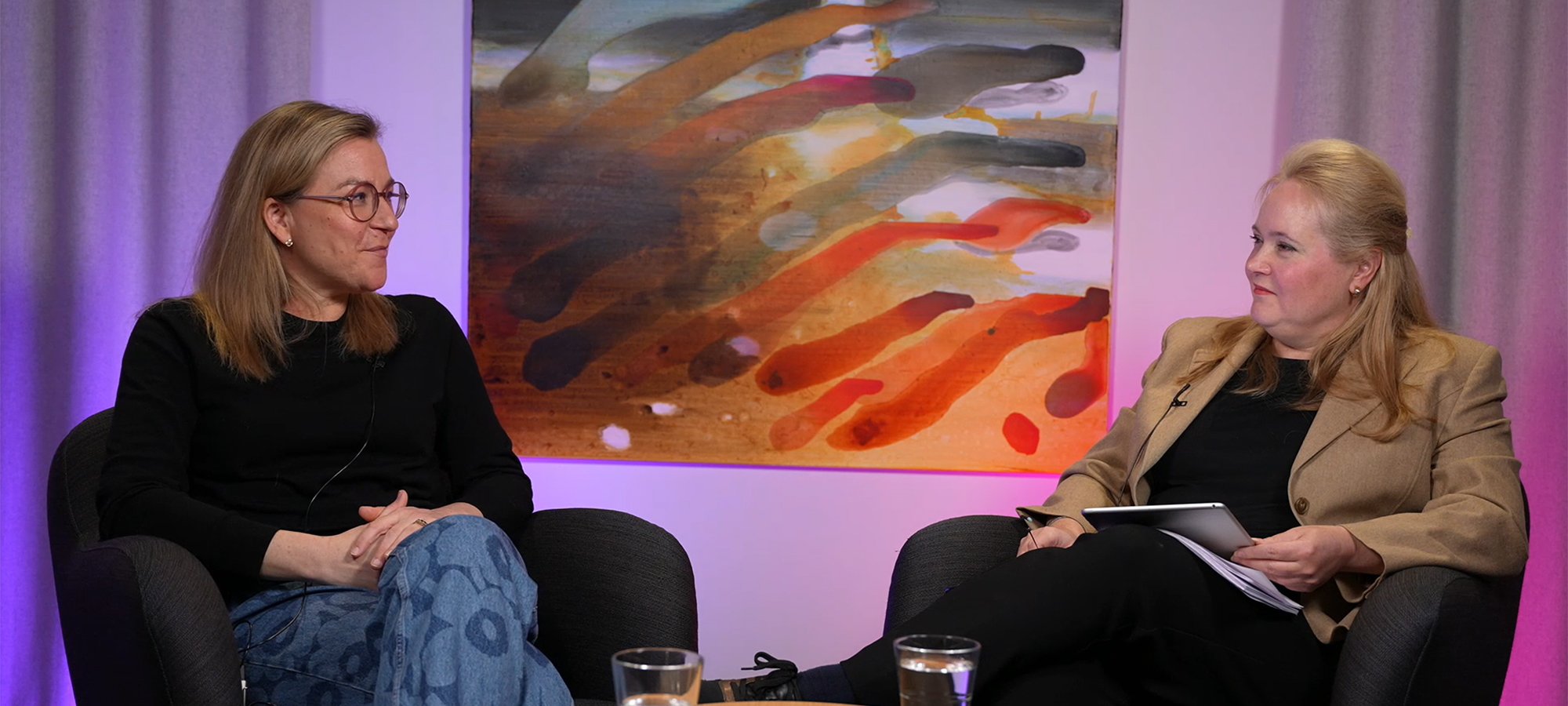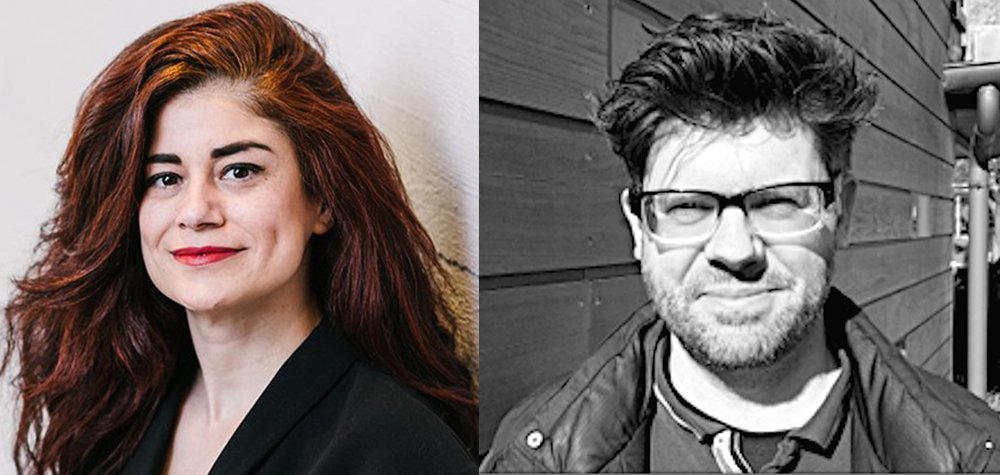Futurist Sari Stenfors’ favorite year is 2092.
The next 20 years will present significant challenges. We must address the crises affecting the biosphere, climate, and mental health.
Another pandemic is inevitable, too; it’s just a matter of when. Additionally, artificial intelligence will assume many roles traditionally held by humans.
To navigate these challenging times, we must adapt and look ahead. It is insufficient for leaders to only consider what the world will look like in ten or twenty years.
They must extend their vision to the 2090s.
"To navigate the challenging years ahead,
we need to reimagine ourselves
beyond our current understanding."
In the industrial era, we humans functioned like robots, Stenfors remarks. Now, we have the opportunity to redefine what it means to be human.
“To navigate the challenging years ahead, we need to reimagine ourselves beyond our current understanding.”
Traditionally in business, human labor has been utilized to optimize financial returns and efficiency. However, we do not operate with the mechanical precision of robots.
For instance, one of our distinct human strengths is our capacity for emotion. It’s time to acknowledge that we are emotional beings and that we base our decisions predominantly on emotions.
We still have much to learn about the human brain. There are numerous skills and processes that we cannot fully explain, much less model and impart to a computer.
“It’s worth considering what the new human will need and what will be important to them.”
Protopic futures are beneficial but realistic
Stenfors is focused on exploring a future that is at least 50 years ahead.
She consults companies, communities, and public organizations. Her current projects include a TV series set in 2092 and a game designed for young people that revolves around time travel and hope.
Stenfors has focused on protopias. Protopic futures present an alternative to both dystopia and utopia. These are scenarios that are beneficial for both humans and nature, yet remain realistic – not all problems are solved, but not all is lost either.
In these futures, technological progress supports biological evolution.
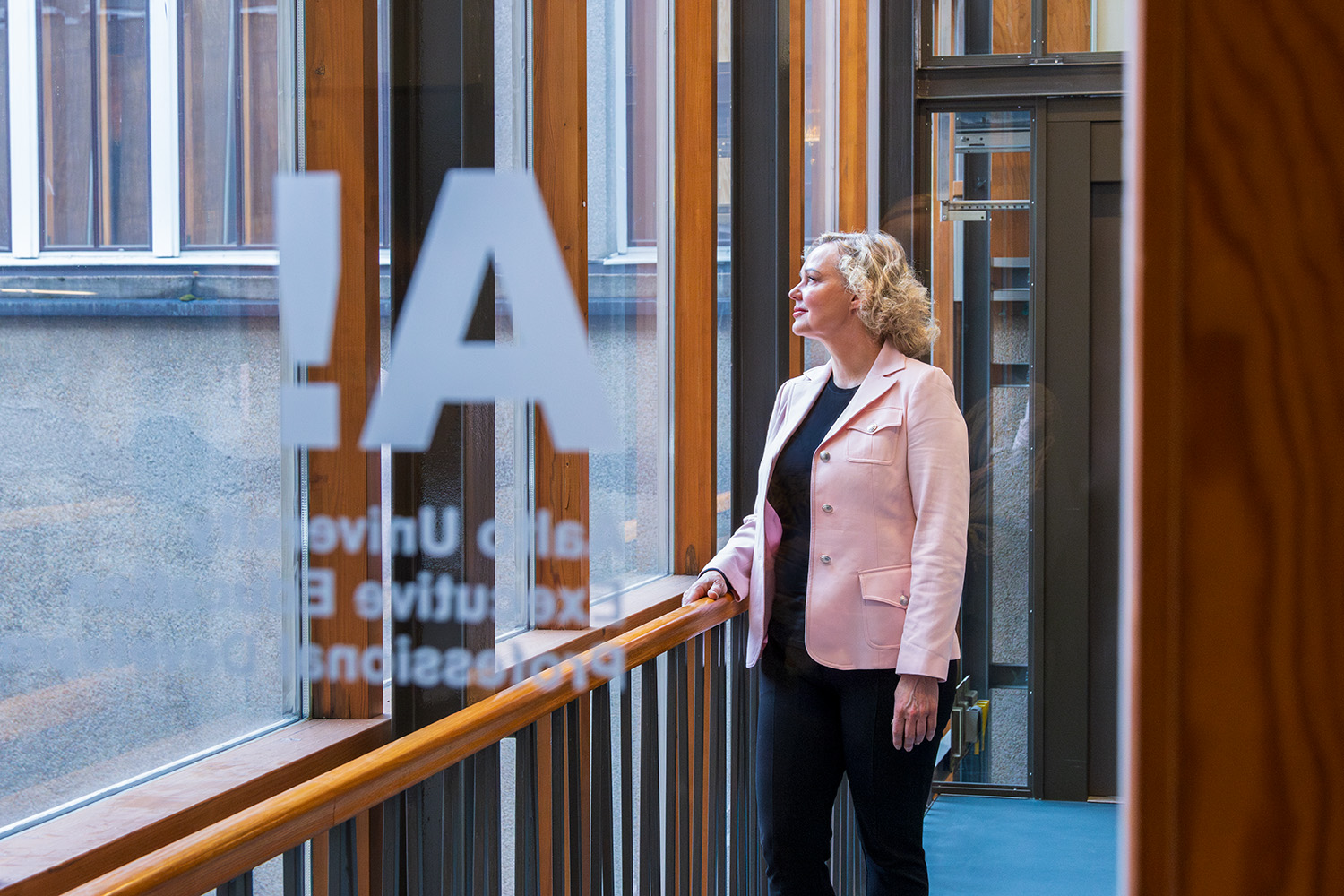
In her work, Sari Stenfors focuses on protopias: future that is realistic, yet human-centered and inclusive.
The concept of protopia was in troduced in 2009 by futurist Kevin Kelly, a co-founder of Wired magazine.
For many futurists who explore protopias, these scenarios provide a roadmap towards a future that is more realistic, human-centered, and inclusive.
Psychological safety and inclusiveness are crucial.
Feeling comfortable to be oneself at work, being heard and seen, and having the ability to express one’s needs contribute to well-being and foster creativity.
We need existential hope in the business world
The concern young people have for the world sparked Stenfors’ interest in hope.
She was moved by an article on the climate crisis that revealed more than half of young people believe the world will end within their lifetimes.
What is life like when you are constantly afraid that everything might end?
Stenfors is passionate about fostering a hopeful future. This doesn’t necessarily mean she believes the world will improve – rather, it signifies her commitment to striving for a better world. She considers this a worthwhile use of her time.
To surmount challenges and motivate people, it’s essential to consider how to instill hope.
Hope is cultivated when there is a clear vision of the desired direction and an understanding of the resources required to progress towards that vision.
"Even in dire circumstances, existential hope
inspires people to persist, to strive, and
to seek new solutions."
Even in dire circumstances, existential hope inspires people to persist, to strive, and to seek new solutions. A recurring theme among researchers is the resilience of individuals who survived concentration camps during World War II.
“They harbored a rich world within their minds. Regardless of the setbacks, they consistently discovered new perspectives to move forward and never surrendered.”
This is also essential in the business world: the courage to try new things. If one idea fails, devise another. We cannot afford to be paralyzed by the fear of failure and mistakes.
This type of radical creativity is also one of the cross-cutting approaches in Aalto University’s strategy.
Every journey encounters dead ends. However, the more paths you explore toward the desired outcome, the greater the hope becomes. Hope, in turn, generates more hope.
Hope is known to have numerous positive effects. It not only extends the years of a fulfilling life but also motivates problem-solving.
“That’s why protopias are so important to me: they represent achievable, beneficial futures towards which we can strive.”
Transform your fears into assets
Uncertain economic conditions, wars, conflicts, and changes in the workplace contribute to heightened anxiety and fear.
Stenfors emphasizes the importance of addressing these fears and transforming them into assets.
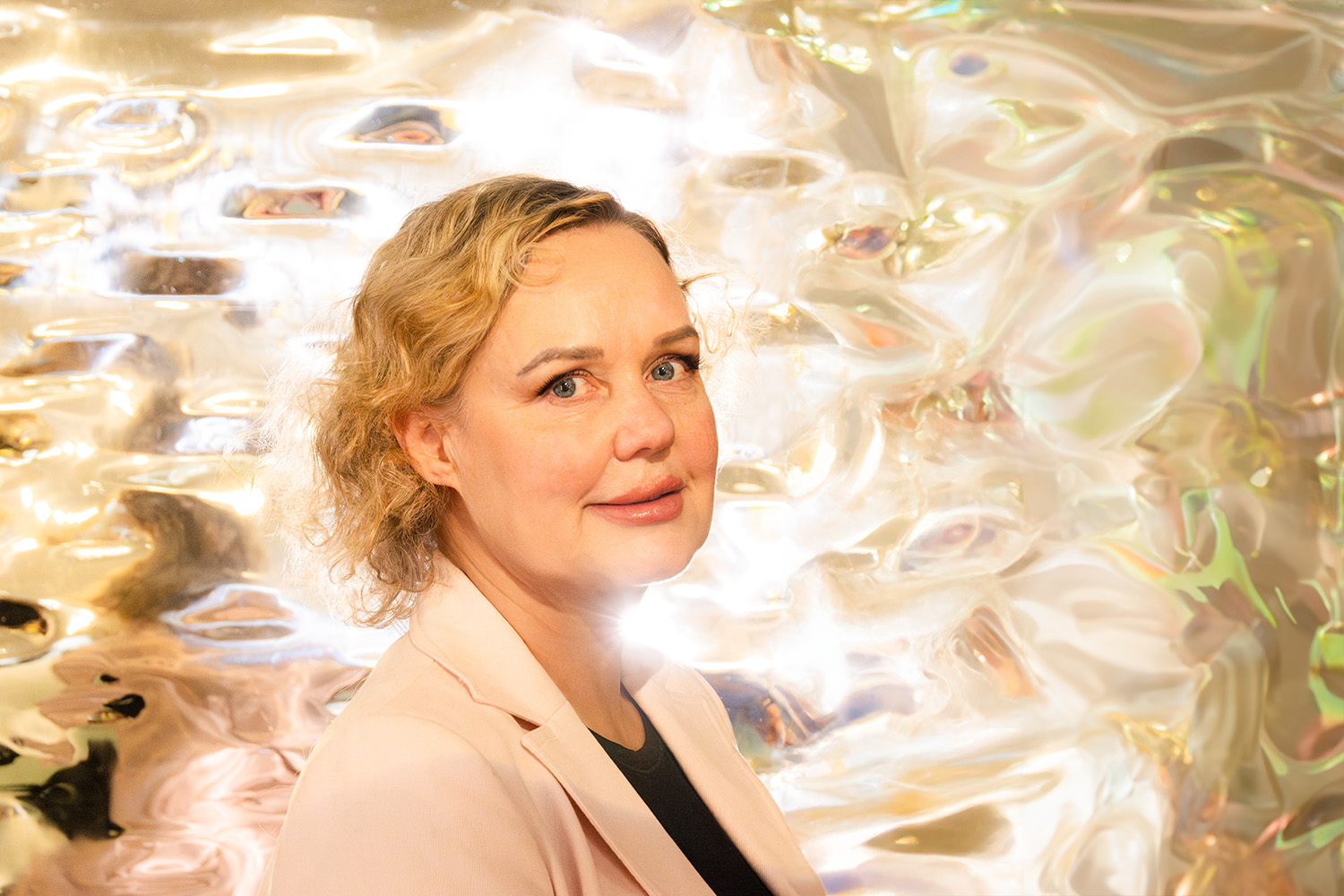
According to Stenfors, when you get familiar with your fears, you find the underlying resources. She often experiences feelings of inadequacy. "I'm naturally a team player and strive to ensure everyone feels comfortable."
She conducts fear workshops for various clients, teaching that understanding one’s fears often reveals underlying resources.
“My fears, for example, are often related to feelings of inadequacy.”
Even when Stenfors accomplishes her weekly goals, she often finds herself expecting more from herself. This sense of inadequacy arises from a deep-seated care; she desires the well-being and happiness of her colleagues, family, and friends.
“Ultimately, it boils down to love and a desire to be useful and supportive to others.”
This quality serves as an “amazing resource” in the workplace.
“I’m naturally a team player and strive to ensure everyone feels comfortable.”
Once the resource is identified, it can be utilized to steer the course towards the vision.
Fears also reveal people’s values and what matters most to them.
Understanding what is important to someone can foster hope and motivation. For instance, consider expanding a person’s job role to include tasks that align with their values.
Aalto EE will organize a free webinar on Wednesday, September 18, 2024, where Sari Stenfors and philosopher Frank Martela will discuss, among other things, how we can build a meaningful future in organizations in an era of upheavals and radical changes. What will the human side of leadership look like in the future and can artificial intelligence ever replace human leadership? Read more and sign up here!
















